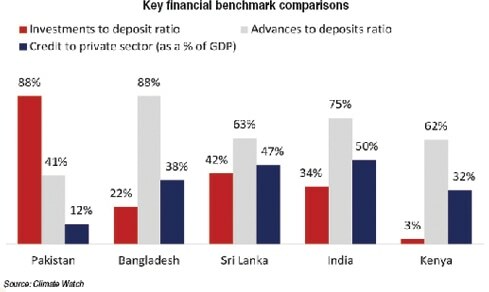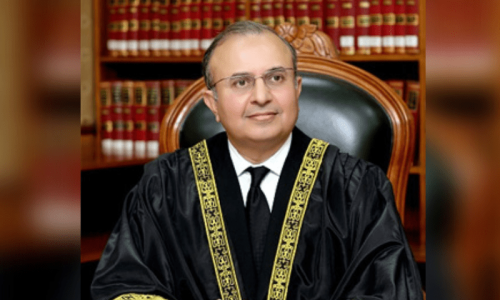ISLAMIC financial products are emerging as an alternative to conventional banking instruments in countries where faith-based clients reside in good numbers.
The recent State Bank KAP (Knowledge, Attitude and Practices) study reflects the public’s confidence in Islamic banking products particularly in Pakistan.
And while the desired outcomes both conventional and Islamic banking products seem to be similar, the underline mechanism varies to a great degree.
The Murabaha is one of the most widely used Islamic financing products (mode) across the globe. In Pakistan, its share is about 40pc of all Islamic banking products.
Murabaha is an Arabic word that is derived from the root word ‘ribhun,’ meaning ‘profit’. The seller is bound to disclose the profit amount in the Murabaha sale, and hence this differs from the ordinary Musawamah (bargaining) sale.
Murabaha may be referred to as ‘cost-plus financing,’ which is widely used by Islamic banking institutions (IBIs) to entertain the working capital requirements of corporate and commercial customers.
Murabaha is not a loan provided on interest; rather, it is a two-staged sale of a commodity with a pre-agreed upon amount of profit. A banking Murabaha involves three parties: the bank, the client and the supplier.
A Murabaha is a two-staged sale of a commodity with a pre-agreed upon amount of profit. A banking Murabaha involves three parties: the bank, the client and the supplier
In the first stage, the bank, which does not have the expertise to purchase the commodity required by the customer, appoints the customer as its agent to purchase the goods on its behalf for a specified facility tenor, usually not more than 180 days.
In the second stage, the bank subsequently sells the commodity to the customer at a declared profit computed on an agreed upon formula (cost-plus profit). This second sale is termed a ‘Murabaha,’ and usually takes place on a deferred payment basis.
As such, rather advancing money to a borrower, the bank buys the commodity from a third party — mostly through its customer — and then sells the good to the customer on a profit.
The banking Murabaha is termed ‘Murabaha to the purchase orderer’ by the Accounting and Auditing Organisaion of Islamic Financial Institutions, a body set up by the Islamic Financial Services Board.
The transaction can only be executed by IBIs upon their customers’ willingness to subsequently purchasing the product from the IBIs.
The profit on a Murabaha transaction is calculated on the prevailing benchmark rate; usually Kibor or Libor of matching tenor are used as the benchmark and this does not make the IBPs illegitimate (haram).
There is some confusion over whether transactions priced using prevailing interest-based benchmarks are compliant with Shariah or not. Hence, the question arises: whether selling goods for a profit under Murabaha and charging interest on a loan appear to be of the same nature, considering the outcome of both the transactions.
The core difference lies in the nature of the contract being used; one is a loan contract and the other is a sale contract. Murabaha is a trading activity, whereas a loan facility is a lending agreement on an interest rate.
Merely using Kibor or Libor as a benchmark for the computation of the profit on a Murabaha doesn’t make the transaction null and void from Islamic law point of view, and as such it does not amount to riba.
The profit on Murabaha derived from Kibor or Libor is not similar to the concept of the time value of money on which conventional loan transactions are based upon. The nature of the subject matter being sold through a Murabaha would not change by simply using the prevailing benchmark as the basis for calculation of the profit. It merely serves as a scale for measurement of profit for a certain period of time.
An example would be using a glass or a bottle of wine water usage. Does water used in the wine bottle change its nature? The answer is no. Nevertheless, it is not preferred.
A Murabaha may be used for a number of activities of a business enterprise. After scrutinising the needs of the customer, the bank proposes the appropriate product for: purchasing raw material to manufacture ordered goods’ purchasing goods/inventories on wholesale and subsequently selling on the retail market; funds for retiring imported merchandise and • buying equipment and other input to expand the business or to meet day-to-day requirements.
Don’ts in Murabaha: rollover re- pricing of Murabaha is not allowed; genuineness of the purchase; no buybacks allowe; late payment charges cannot be made part of the bank’s income and must go to the charity accoun; not adhering to the sequential order of the transaction’s stages; utility bills/overhead expenses cannot be financed through Murabaha.
A Murabaha is a legitimate and Shariah-compliant transaction and Islamic jurisprudence provides sufficient evidence about its legality.
The writer is the head of Islamic banking products at Habib Metropolitan Bank.
Published in Dawn, Economic & Business, April 27th, 2015
On a mobile phone? Get the Dawn Mobile App: Apple Store | Google Play











































Dear visitor, the comments section is undergoing an overhaul and will return soon.